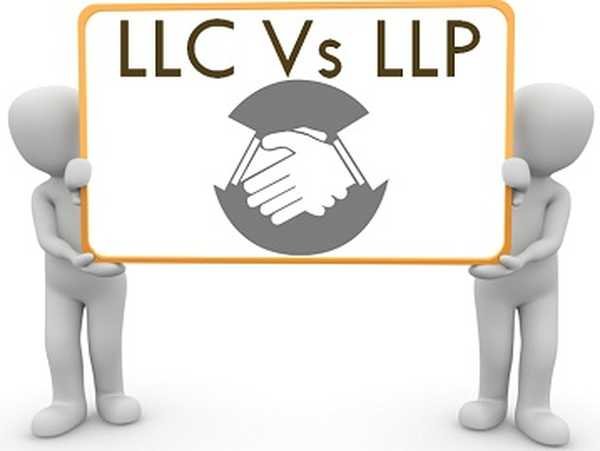For business owners, private wealth advisors, law firms, and financial consultants operating on the global stage, the debate between forming a Limited Liability Partnership (LLP) or a Limited Liability Company (LLC) remains as relevant in 2025 as ever.
Each structure comes with its own distinct operational and legal implications, especially in offshore environments where the nuances of regulatory frameworks, tax exposure, and disclosure requirements can make or break a business strategy.
Understanding the Offshore LLP Structure
An LLP is a hybrid business model that blends partnership-style flexibility with corporate-style liability protection. Offshore LLPs are frequently leveraged by professionals in law, accounting, and advisory services, particularly in jurisdictions that prioritize financial privacy and tax neutrality.
Key Attributes of an Offshore LLP:
- Minimum two partners, either individuals or legal entities
- At least one partner must assume unlimited liability (general partner)
- Other partners benefit from limited liability, capped at their capital contribution
- Typically not subject to corporate tax (depending on jurisdiction)
- Pass-through taxation enables profit allocation directly to partners’ income
- Looser formalities make it a streamlined model for small professional practices
Ideal Use Cases: Professional service providers, boutique investment firms, and asset management partnerships seeking tax efficiency and managerial flexibility.
The Offshore LLC: A Modern Tool for Global Enterprises
Offshore LLCs are designed to provide full limited liability for all members, while allowing an extremely adaptable governance structure. From holding companies and digital enterprises to high-volume e-commerce platforms and blockchain startups, the LLC offers versatility without the bureaucracy of traditional corporations.
Core Benefits of an Offshore LLC:
- Single or multiple members allowed
- Full limited liability for all stakeholders
- Elective taxation: pass-through or corporate
- No obligation for annual meetings or corporate minutes
- Strong asset protection frameworks in key jurisdictions
- Suitable for diversified business operations, including intellectual property management, trading, and global licensing agreements
Popular Jurisdictions: Nevis, Belize, Cayman Islands, Wyoming, and the UAE, depending on specific needs for privacy, regulation, and banking access.
Strategic Comparison: LLP vs. LLC
While both vehicles offer limited liability and simplified compliance compared to traditional corporations, their strategic advantages diverge:
| Criteria | LLP | LLC |
| Liability Structure | Mixed: one general partner holds full liability | All members have full limited liability |
| Tax Treatment | Pass-through by default | Pass-through or corporate (elective) |
| Formation Requirements | At least two partners | Can be single-member |
| Ideal For | Professionals, partnerships | Holding companies, startups, digital businesses |
| Management Flexibility | Shared per partnership agreement | Member-managed or manager-managed |
| Economic Substance Impact | Often lower | Higher in certain jurisdictions |
| Regulatory Burden | Light | Moderate, jurisdiction-dependent |
Choosing Based on Taxation and Regulatory Climate
Tax optimization is often a decisive factor when choosing between an LLP and an LLC. Offshore LLPs excel in pass-through taxation, enabling profits to bypass entity-level tax and flow directly to partners. This model aligns well with jurisdictions that do not levy tax on foreign-sourced income (e.g., Belize, Nevis).
On the other hand, LLCs offer flexibility to switch between pass-through and corporate taxation, giving businesses more control over how profits are allocated, taxed, or reinvested. For groups looking to consolidate global profits or defer taxes through retained earnings, LLCs in jurisdictions like the BVI or the Cayman Islands are particularly effective.
Economic Substance Compliance: In 2025, more offshore jurisdictions enforce economic substance rules to comply with OECD and FATF directives. LLPs often sidestep these due to their partnership model, while LLCs operating in certain sectors (finance, IP holding, distribution) may need to demonstrate physical operations.
Offshore Banking and Financial Infrastructure
Opening and maintaining a reliable offshore bank account remains a cornerstone of effective cross-border operations. However, not all banking institutions are equally open to offshore LLPs or LLCs.
Key Considerations:
- Switzerland, Liechtenstein, Singapore, Mauritius, and certain Caribbean countries offer robust banking services tailored to offshore structures.
- Certified ID, proof of address, detailed business plan, source of funds, and corporate documents (e.g., LLP Agreement or LLC Operating Agreement)
- Critical for international firms managing cross-border payments and currency risks
- Some banks now offer custodial services and crypto-fiat conversion for LLCs engaged in digital commerce or Web3 services
An LLP or LLC with well-documented compliance and transparent ownership will find it significantly easier to secure banking relationships and payment processing partners, details can be clarified with experienced managers..
Practical Scenarios: LLP or LLC?
Choose an LLP when:
- You are part of a professional firm with multiple co-founders sharing management responsibilities
- Tax transparency and flexible profit sharing are central to your business strategy
- You’re seeking minimal formalities and lighter economic substance requirements
Choose an LLC when:
- You prioritize personal asset protection and liability segregation
- Your business spans digital assets, international trading, or IP licensing
- You want jurisdictional flexibility and corporate structuring options (e.g., multi-tier holdings)
Compliance, Reporting & Risk Management
Whether you select an LLP or an LLC, ignoring compliance obligations can lead to frozen bank accounts, revoked licenses, and reputational damage.
Key Risks:
- AML/KYC Violations. Offshore structures are often scrutinized under global transparency initiatives. Ensure that your business has robust internal documentation and up-to-date due diligence records.
- Regulatory Drift. Legal reforms in the EU, US, and OECD member states influence offshore centers constantly. Stay updated and conduct annual reviews of your structure.
- Annual Filings. Most jurisdictions require minimal filings, but non-compliance with renewals can result in penalties or dissolution.
- Bank De-risking. Some banks are closing offshore accounts to reduce perceived risk. Proactive compliance and choosing the right banking partner mitigate this issue.
Final Thoughts
Сhoosing between an LLP and an LLC isn’t just about cost or paperwork. It’s about aligning your corporate structure with your operational footprint, risk appetite, tax strategy, and long-term growth plans.
An offshore LLP can be a perfect fit for professionals and advisory firms prioritizing flexibility and simplified tax flows. LLCs cater better to dynamic, tech-driven ventures looking for broad protections, corporate optionality, and full ownership confidentiality.
Whichever route you choose, remember this: the strength of your structure lies not in the acronym, but in how well it supports your strategy. Structure wisely, scale globally.






